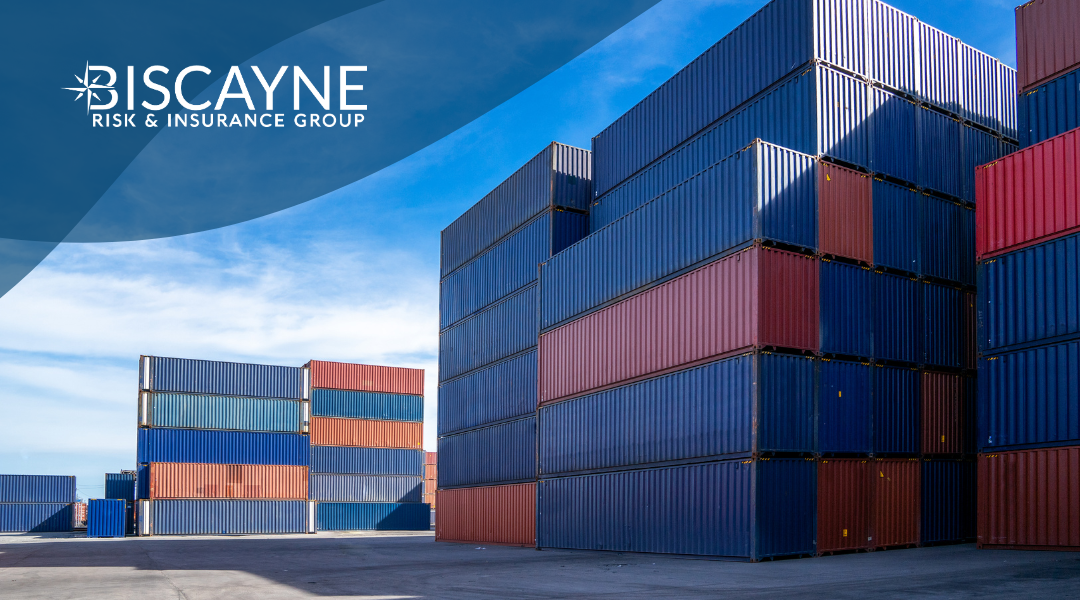Table of Contents
Businesses can ensure long-term success and stability by understanding and mastering import/export insurance. It’s crucial for companies that want to grow and diversify their products or services.
Connecting with global markets allows businesses to reach more customers and capitalize on opportunities available abroad. However, navigating the complexities of international trade requires the right insurance coverage for mitigating risks.
What Are the Key Risks Faced by Import/Export Businesses?
Understanding the risks that come with importing and exporting can help you protect your business. It also helps to ensure smooth operations. Here are some of the key risks:
Logistical Challenges – Businesses can experience complexities in coordinating international shipments, and delays due to customs clearance and regulatory compliance.
Transportation Hazards – There is a risk of loss, damage, or theft of goods during transit.
Legal Liabilities – Potential claims could arise from product defects or damages. Companies can experience contractual disputes with buyers, suppliers, or freight forwarders.
Geopolitical Instability – The impact of political unrest, wards, and uprisings on trade routes can impact a business engaging in importing or exporting. Fluctuations in currency exchange rates can affect transaction costs.
Economic Fluctuations – Changes in demand and supply dynamics in international markets present a potential risk. Also, variability in container ship rates and freight costs along with financial instability in trading partner countries can affect payment security.
Why Is Insurance Crucial for Import/Export Businesses?
Insurance plays a vital role in the import/export industry, in that it provides a safety net to help businesses manage risks. Businesses that do not have adequate insurance can jeopardize their operations and profitability.
Here are some reasons why insurance is important for import/export businesses:
Loss and Damage Protection – Covers financial losses from damaged, lost, or stolen goods during transit while ensuring compensation for unforeseen events.
Mitigation of Legal Liabilities – Protects against claims arising from product defects or damages caused during transit. Also, it covers legal fees and compensation costs associated with contractual disputes and liability claims.
Compliance with International Laws – Helps to ensure smooth customs clearance by fulfilling regulatory requirements, such as customs bonds. It also helps to avoid delays and penalties associated with non-compliance with import/export regulations.
Financial Stability and Continuity – Provides business interruption insurance to compensate for income loss due to unforeseen events. Also, it helps to ensure the continuity of operations during disruptions such as natural disasters.
What Types of Insurance Are Best for Import/Export Businesses?
Different types of insurance address specific aspects of the business, providing comprehensive protection. Here are the key types of insurance that are critical for import/export businesses:
Ocean Cargo Insurance – Helps to protect against loss damage, or theft during transit. It covers various transportation modes including sea, air, road, and rail.
General Liability Insurance – Protects against financial loss associated with bodily injury and property damage to third parties. It also includes protection against claims of copyright infringement, slander, or libel. General liability insurance may not be required by law but it is necessary for providing comprehensive protection.
Customs Bonds – It is required by customs authorities to ensure compliance with import/export regulations. It guarantees the payment of duties, taxes, and fees.
Freight Forwarder Insurance – Protects against financial losses caused by errors, omissions, or negligence of freight forwarders. It ensures coverage for potential damages due to logistical mishaps.
Business Interruption Insurance – Compensates for income loss due to events beyond the business’s control. It covers disruptions from natural disasters, strikes, or supply chain interruptions.
Business Auto Insurance – Provides exceptional coverage for cars, trucks, and other vehicles used for business purposes. It protects against accidents, property damage, and medical costs, ensuring business continuity.
How Can Biscayne Risk and Insurance Help Businesses With Their Import/Export Risks?
By understanding and securing these types of insurance, import/export businesses can safeguard their operations, manage risks effectively, and focus on expanding their business.
You can learn more about how Biscayne Risk and Insurance can help you understand and mitigate risks. Please reach out to our team of professionals as we offer personalized consultations to address your specific needs.
We offer customized insurance solutions that will give your business the comprehensive protection that it needs.
Please contact us today to get started. We look forward to working with you!

